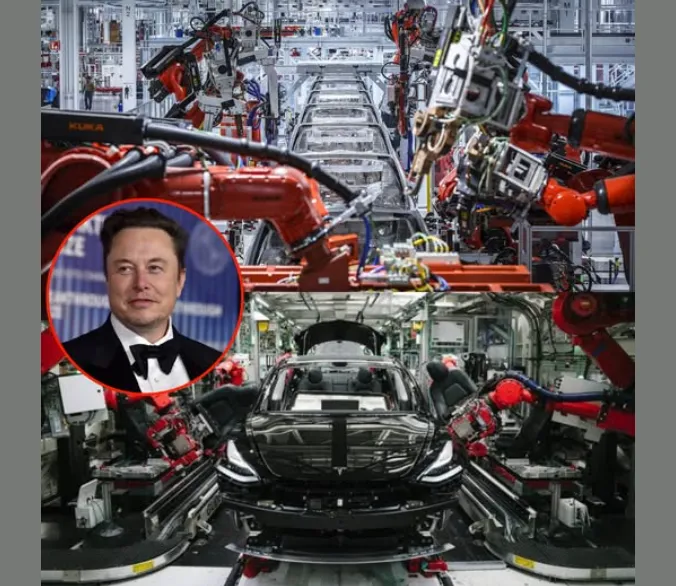"The new salary of the Pope has been revealed! 😱 The figure surprised… See more"The Pope’s Financial Situation Contrasts with the Rest of the Church Hierarchy and Lay Employees Working in the VaticanThe election of a new Pope not only marks a spiritual change in the Catholic Church, but also sparks great curiosity among millions of people around the world. Who is the new leader? Where is he from? What kind of lifestyle will he lead in the Vatican? Will he have the same humble profile as his predecessor? And one of the most frequently asked questions—though rarely answered clearly: Does the Pope receive a salary for leading the Church?With the recent election of Cardinal Francis Prevost as Leo XIV, these questions have resurfaced. He is a unique figure, with symbolic and political power, but also with a personal life that many imagine surrounded by luxury, according to the Spanish newspaper La Razón.However, the reality is quite different from the image many people have in mind.The Vatican, as an institution, operates with its own economic structure, and although it has significant resources, its highest representative does not receive a personal salary for fulfilling his role.This contrasts with the rest of the Church hierarchy and with lay employees, who do have assigned salaries.So, how does the Pope live? Who pays for his expenses? What are the sources of funding the Vatican uses to maintain its organizational structure? And what benefits do those working within its walls receive?Does the Pope get paid for being the head of the Vatican? The answer is no. The Pontiff does not receive any monthly income for performing his duties. Unlike cardinals, who earn about $6,000 per month, the Pope has no payroll. This policy has not changed with the arrival of Leo XIV.Instead of a salary, the Pope lives with all his expenses covered by the Vatican: lodging, food, clothing, transportation, and personal staff are all fully funded by the Holy See. It’s a model in which the highest representative of the Church neither handles personal money nor pays bills.Pope Francis holds onto his cap during his weekly general audience in the Paul VI Hall at the Vatican on August 7, 2019. Photo: File, AFPThe late Pope Francis chose an austere lifestyle and settled in the Santa Marta residence instead of the traditional Apostolic Palace.It remains unknown whether Leo XIV will follow this path or opt for the more classic papal residence located within the Vatican complex. His choice will set the tone of his papacy in terms of lifestyle and symbolism.Although the Pope does not receive a salary, the Vatican has its own economy that supports its structure and covers all expenses for the Pontiff and other ecclesiastical positions.Thanks to these resources, the Vatican is able to sustain not only the Pope’s life but also that of thousands of employees and clergy members.In a documentary titled Amen: Francis Responds, the former Pope was clear: “I don’t get paid anything. If I need shoes or clothes, I just ask for them.” These words aptly define the economic model in which the leader of Catholicism operates.
Where is he from? What kind of lifestyle will he lead in the Vatican? Will he have the same humble profile as his predecessor? And one of the most frequently asked questions—though rarely answered clearly: Does the Pope receive a salary for leading the Church?With the recent election of Cardinal Francis Prevost as Leo XIV, these questions have resurfaced. He is a unique figure, with symbolic and political power, but also with a personal life that many imagine surrounded by luxury, according to the Spanish newspaper La Razón.However, the reality is quite different from the image many people have in mind.The Vatican, as an institution, operates with its own economic structure, and although it has significant resources, its highest representative does not receive a personal salary for fulfilling his role.This contrasts with the rest of the Church hierarchy and with lay employees, who do have assigned salaries.So, how does the Pope live? Who pays for his expenses? What are the sources of funding the Vatican uses to maintain its organizational structure? And what benefits do those working within its walls receive?Does the Pope get paid for being the head of the Vatican? The answer is no. The Pontiff does not receive any monthly income for performing his duties. Unlike cardinals, who earn about $6,000 per month, the Pope has no payroll. This policy has not changed with the arrival of Leo XIV.Instead of a salary, the Pope lives with all his expenses covered by the Vatican: lodging, food, clothing, transportation, and personal staff are all fully funded by the Holy See. It’s a model in which the highest representative of the Church neither handles personal money nor pays bills.Pope Francis holds onto his cap during his weekly general audience in the Paul VI Hall at the Vatican on August 7, 2019. Photo: File, AFPThe late Pope Francis chose an austere lifestyle and settled in the Santa Marta residence instead of the traditional Apostolic Palace.It remains unknown whether Leo XIV will follow this path or opt for the more classic papal residence located within the Vatican complex. His choice will set the tone of his papacy in terms of lifestyle and symbolism.Although the Pope does not receive a salary, the Vatican has its own economy that supports its structure and covers all expenses for the Pontiff and other ecclesiastical positions.Thanks to these resources, the Vatican is able to sustain not only the Pope’s life but also that of thousands of employees and clergy members.In a documentary titled Amen: Francis Responds, the former Pope was clear: “I don’t get paid anything. If I need shoes or clothes, I just ask for them.” These words aptly define the economic model in which the leader of Catholicism operates.

Inside Elon Musk’s “Alien Dreadnought”: How Tesla Is Rewiring the Future of Manufacturing


